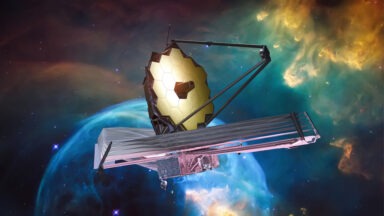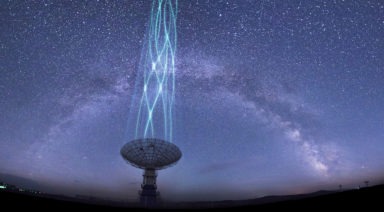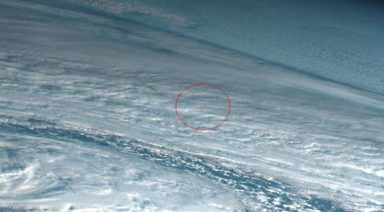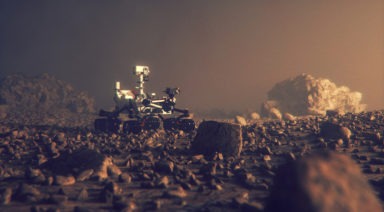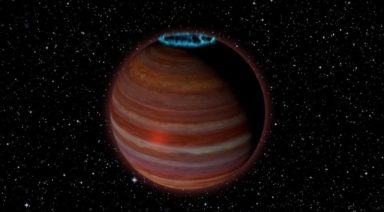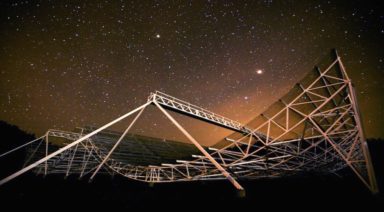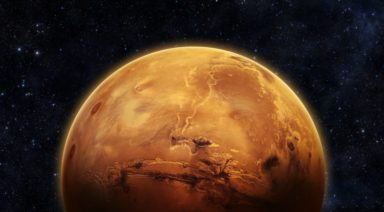New Telescope May Allow Us to View Alien Planets

As a long-awaited space telescope heads toward liftoff, a new survey of U.S. astronomers and astrophysicists puts the search for habitable planets on the top of their list for the next 10 years. This survey by the national academies of sciences, engineering, and medicine, also spelled out how to ramp up resources including ground and space telescopes.
Astronomer and Gaia News contributor Marc D’Antonio weighed in on the report. “There’s a number of aspects to this report which are very important to take away from the news and that is, number one, professional astronomers, tenured professors, astrophysics schools all are saying ‘We know there’s life out there.’ Number two, they’re saying ‘We want to find it.’”
“This is very important because what we’re seeing is part of the continued shift toward that end of the spectrum. So astronomy and astronomers are being dragged kicking and screaming in some cases, not all, down the path to say ‘We know life exists, and we think we can detect it now, and we’d like to,’ that’s a huge shift, I mean a huge shift,” D’Antonio said.
It seems like people in the general public are open to the idea of off-planet life. Why is this report so significant?
“It is news when you consider that academia has never really bought into that. So when you have a Harvard astrophysicist saying this you see the writing on the wall, academia is going down this path and they’re going to keep going down this path. And they’re going to pursue finding life in the universe.”
Meanwhile, the much-anticipated James Webb space telescope is scheduled to finally launch this month after a history of postponements and delays.
Why are astronomers so excited about this telescope?
“If you look at the James Webb’s Space Telescope’s capabilities I think you’ll find that the James Webb is probably the most significant mission in our history to this point on Earth. The reason is because of what it stands to be able to show to us. It might be able to answer the question, the real true question: ‘Is there life out there?’
Because it’s going to be able to see the atmospheres of exoplanets around distant stars. We’ll see things that might indicate that there is life there, and that is a very important revelation that we can’t do right now because we don’t have a telescope that’s really got the resolution to do that. James Webb is right there, so we have that strength on our side. That’s a very important thing, it could answer that ultimate question.”
The National Academies of Sciences weighed in on their hopes for the future. What does D’Antonio look forward to?
“I hope that we identify planets out there that are suitable way stations for travelers from Earth that might want to go there. Sure, we can’t fly the gulf between the stars now, but we know ways to, and we know ways to do it fast and quickly. That’s something I’d love to see. In 10 years I’d love to see an established program to study — I won’t say faster-than-light travel — but warped space travel. I’d love to see progress there.
“I’d love to see the James Webb give us candidates for planets that we think might actually have signs of industrial pollutants, signs of oxygen in the atmosphere inferred from other chemicals in the atmosphere like carbon dioxide and methane, and other possibilities. Those other possibilities, what are those? That’s the mystery. Well, those are signatures of life. The next 10 years promises to show us some incredible things, and hopefully, we’ll understand some of these other phenomena in the universe that are occurring, that right now we don’t understand too well.”
Whether or not the recommendations in the survey will be followed remains to be seen… but the James Webb Space Telescope’s planned launch date is Dec. 22
Scientists Are Now Using Sound Waves to Regrow Bone Tissue

The future of regenerative medicine could be found within sound healing by regrowing bone cells with sound waves.
The use of sound as a healing modality has an ancient tradition all over the world. The ancient Greeks used sound to cure mental disorders; Australian Aborigines reportedly use the didgeridoo to heal; and Tibetan or Himalayan singing bowls were, and still are, used for spiritual healing ceremonies.
Recently, a study showed an hour-long sound bowl meditation reduced anger, fatigue, anxiety, and depression, which is great news for mental health. But now, a new study out of the Royal Melbourne Institute of Technology in Australia, showed physical healing using sound waves.
Scientists used high-frequency soundwaves to turn stem cells into bone cells in a medical discipline called ’tissue engineering,’ where the goal is to rebuild tissue and bone by helping the body to heal itself.
The researchers shot sound waves at tissue cells for 10 minutes a day over the course of five days. This magnified image shows stem cells turning into bone cells after being treated with high-frequency sound waves.






